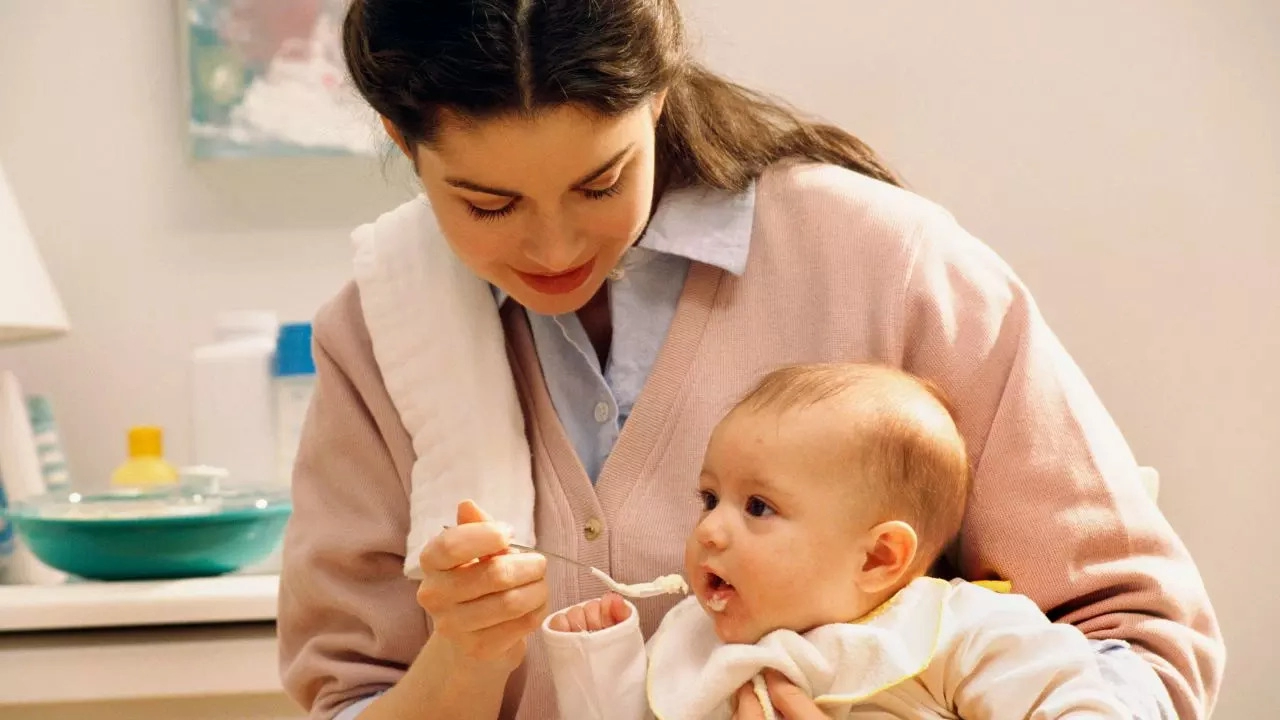Debosmita Ghosh • 13 Aug 2024
What Is Pre-Lacteal Feeding And What Are The Primary Health Risks Associated With This? Expert Shares

Expert Shares What Is Pre-Lacteal Feeding And The Health Risks Associated With It
Pre-lacteal feeding is when a baby is given any food or liquid other than breast milk. This includes water, honey, formula milk, or fruit juice. When a child is fed anything other than breastmilk excluding rehydration solution (ORS), drops and syrups (vitamins, minerals and medicines), it is known as pre-lacteal feeding. However, it is important that you exclusively breastfeed for 6 months, then introduce complementary foods and continue breastfeeding your child for upto 2 years of age.
Exclusive breastfeeding means no other food or drink, not even water, except breastmilk for the first 6 months of life, with certain exceptions such as rehydration solution (ORS), drops and syrups (vitamins, minerals and medicines).
A lot of infants are given pre-lacteal feed in the first few days after birth. This is practised in both high-income as well as low-income countries and these include giving the baby honey or jaggery water or clarified butter or herbal products.
Speaking to Times Now Dr Monica Jani, Gynaecologist & Obstetrician at Bhailal Amin General Hospital, Vadodara shares how pre-lacteal feeding can impact the baby’s health.
Dr Jani says, “These feedings are influenced by a lot of cultural factors and are subject to various other factors like the kind of antenatal care and counselling given to the mother. Quite often we find that the patients who have undergone C-sections are rather sedated or in too much pain and they are not too inclined to feed the baby as soon as possible.”
In such situations, the caretakers resort to pre-lacteal feeding. Here, take a look at the impact of pre-lacteal feeding on the health of infants.
Babies who are on top milk and not on exclusive breastfeeding, are more prone to infection. It is because when you breastfeed, there is no intermediate between the mother and the baby. But for pre-lacteal, one needs to rely heavily on supplements as well.
Dr Jani adds that there are some babies who are allergic to them and we find a lot of such cases. Babies who are not breastfed but are on top milk also have a high risk of infections. Also, they run the risk of childhood obesity because of how much they drink. This is because there are times when there is excessive feeding that happens. They are at risk of diabetes and also sudden infant death syndrome.
“All these things should be used as a deterrent. We should educate women so that they know the benefits of breastfeeding.”
It is a common notion that if the mother is not lactating well, people tend to think that the child will starve and pre-lacteal feed like honey which is an instant calorie. Also, there are a lot of social beliefs and practices. When such feeds are given to children, the baby aspirates and ends up becoming very sick with pneumonia. We’ve also seen mortality which happens because of aspiration due to such pre-lacteal feeding. In a healthy-term baby, the suckling reflex usually comes on very quickly. So, what we advise the new mothers is that every time your baby cries put the baby on breastmilk.
Get Latest News Live on Times Now along with Breaking News and Top Headlines from Health and around the world.